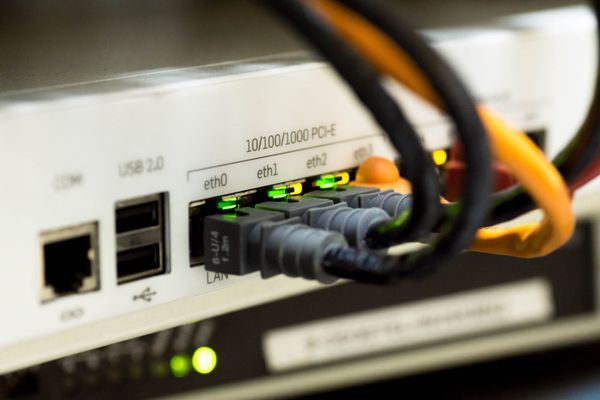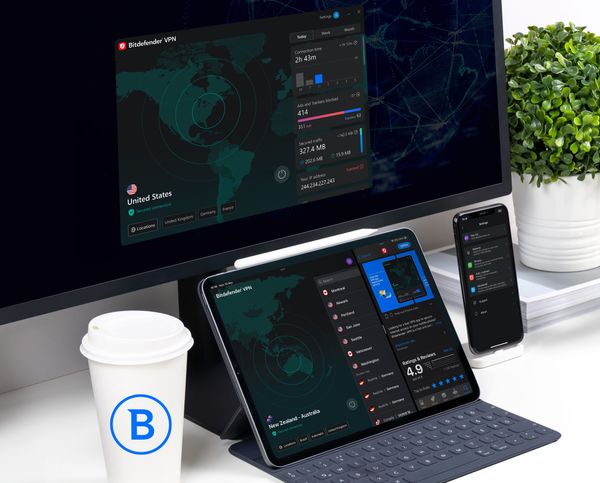Why You Need a VPN with IPv6 Support

Nowadays, protecting your privacy should no longer be deemed optional. Privacy violations take various forms; governments, companies and even individuals can access vast amounts of digital identity information and use it for their gain.
A dedicated privacy protection tool such as a VPN can give you the upper hand in keeping your online activities to yourself. However, even specialized tools can sometimes fail.
How IPv6 came to be
To a certain point, all IP addresses were aligned to the IPv4 standard. Although it served its purpose well, IPv4 uses 32-bit addresses, which means no more than 4,294,967,296 addresses could exist.
To tackle the issues raised by that finite number of IPv4 addresses, the IPv6 standard was introduced. IPv6 uses 128-bit hexadecimal addresses, thus providing a tremendously ample address space (1028, or 79,228,162,514,264,337,593,543,950,336 times larger than IPv4). Furthermore, IPv6 addresses contain simple headers.
However, accommodating more devices on the Internet is just one of many things IPv6 is suitable for. Equally important features include:
- Better, built-in security: supports IPsec through extension headers, thus providing end-to-end security and enhanced interoperability between IPv6 entities
- QoS support: allows packet labeling and facilitates special flow handling thanks to the Flow Label field in the IPv6 header
- Increased reliability and faster speeds: allows bandwidth-intensive packet flows such as media streams to reach many destinations simultaneously thanks to multicast address support
IPv6 and VPNs
Although IPv6 feels like a silver bullet, the world’s not entirely ready to embrace it. Some VPNs, for instance, still struggle to protect IPv6 users from data leaks, which is a severe drawback regarding privacy.
This partial compatibility can leave IPv6 users exposed and vulnerable to various risks, including surveillance, profiling, third-party service tracking and targeted attacks.
Some VPN providers even encourage users to disable IPv6 on their systems to prevent leaks. However, using a VPN with full IPv4 and IPv6 support ensures that all traffic is protected against privacy violations or leaks, regardless of which protocol is used.
A trustworthy VPN should leave no stone unturned and protect your privacy by keeping your connection airtight. Data leaks, even minor ones, could expose your real identity to unwanted actors and allow them to track your online activity.
If you’re considering using a VPN, make sure it’s one that can keep your connection safe from IPv4, IPv6, DNS and WebRTC leaks.
A VPN with full IPv6 support can boost your online privacy
To wrap it up, stateless autoconfiguration, enhanced security features and improved performance make IPv6 a great choice for businesses and individuals looking for reliable connections and top-notch privacy protection.
A VPN with full IPv6 support can help you achieve a secure and seamless internet experience with enhanced privacy features. It has all the features of a traditional VPN but provides much-needed peace of mind by protecting your privacy on IPv4 and IPv6.
tags
Author

Vlad's love for technology and writing created rich soil for his interest in cybersecurity to sprout into a full-on passion. Before becoming a Security Analyst, he covered tech and security topics.
View all postsRight now Top posts
How to Protect Your WhatsApp from Hackers and Scammers – 8 Key Settings and Best Practices
April 03, 2025
Outpacing Cyberthreats: Bitdefender Together with Scuderia Ferrari HP in 2025
March 12, 2025
Streamjacking Scams On YouTube Leverage CS2 Pro Player Championships to Defraud Gamers
February 20, 2025
How to Identify and Protect Yourself from Gaming Laptop Scams
February 11, 2025
FOLLOW US ON SOCIAL MEDIA
You might also like
Bookmarks








